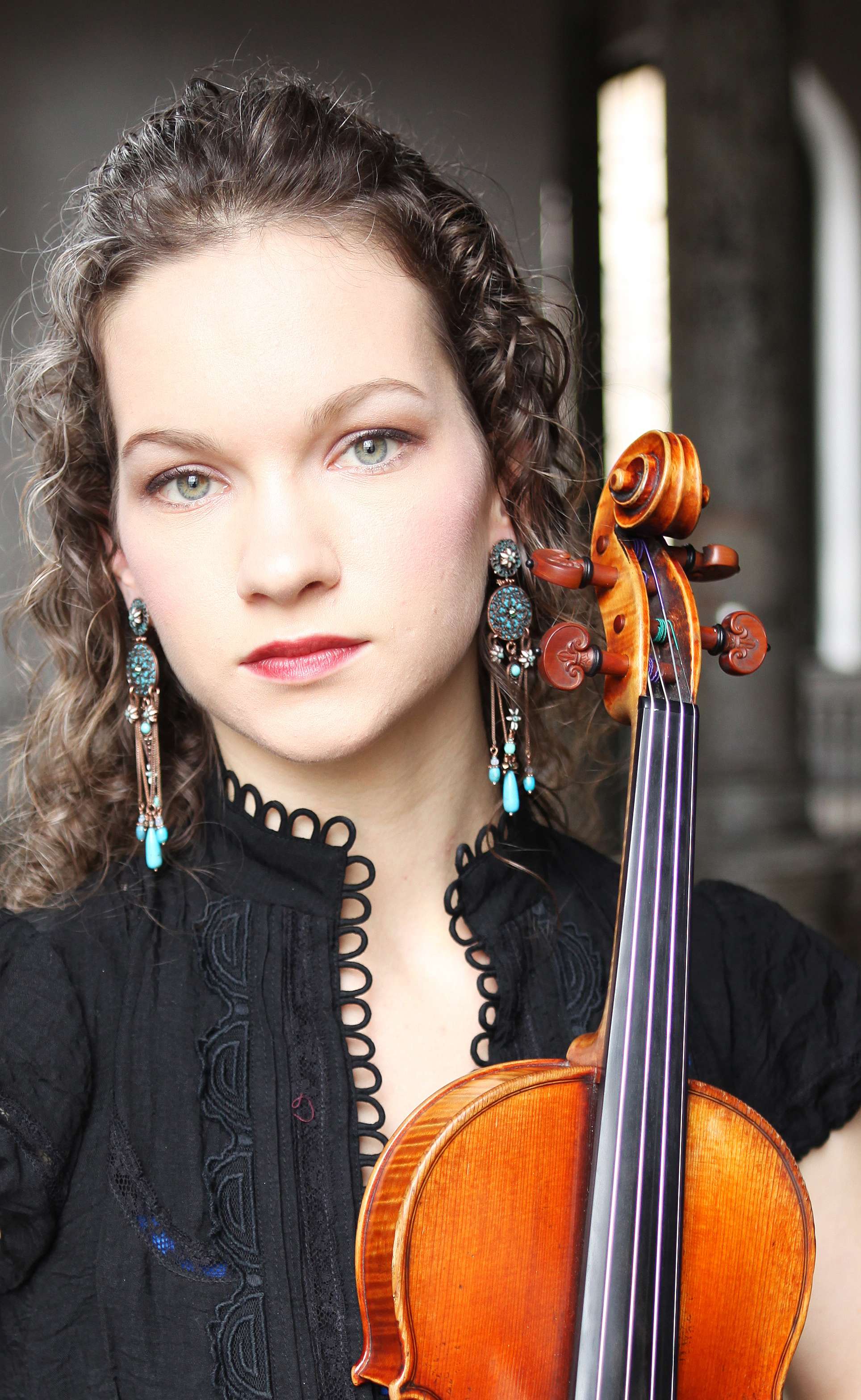|
Back
Two Sides of Perfection Houston
Jones Hall
03/31/2012 - and April 1*, 2012
Benjamin Britten: Four Sea Interludes from "Peter Grimes", Op. 33a
Sergei Prokofiev: Violin Concerto No. 1 in D Major, Op. 19
Edward Elgar: Sospiri, Op. 70 – "Enigma" Variations, Op. 36
Hilary Hahn (violin)
Houston Symphony, Alexander Shelley (conductor) 
H. Hahn (©Peter Miller)
Two young musicians, both 32 years of age, arrived in Houston to perform with the Houston Symphony. Hilary Hahn came with high expectations, her legacy as one of the premier violinists of her generation firmly established. Andrew Shelley also looked impressive on paper, though most of the audience (myself included) had not encountered his conducting before. With a fresh, intriguing program of coloristic 20th-century repertoire, one was left only half satisfied, with Hahn fulfilling our expectations (and then some!) and Shelley leaving one visually sated but aurally ungratified.
Shelley's pedigree (son of acclaimed pianist Howard Shelley) is impressive, and he's a handsome conductor. His gestures were professional and looked good from the audience, and his conducting from memory was impressive to a degree. His interpretive stances, however, left something to be desired.
In the Britten, things seemed overly rushed from the podium. These are "Interludes" - moments of transition and respite between the enrapturing plot of Peter Grimes. Shelley didn't treat them as such. Perhaps to emphasize their structural similarity to a four-movement symphony, he played the quartet uninterrupted. This single-minded continuity ran deeper than just a series of segues, however. Even within individual movements, there was no expressive nuance to tempo, and phrases were rushed. There was no nostalgic lingering over the wordless incantation of the "What harbor shelters peace?" motive in the middle of the fourth movement "Storm". The "Sunday Morning" churchgoers must have asked for a quick service, and Shelley accommodated. The ebbs and flows of "Moonlight" were jolting pushes and pulls (including a rhythmic hiccup in the middle of the movement that threatened to derail the whole thing). The feeling of the orchestra wanting to be expressive and not just a virtuoso machine throughout was palpably tense. From the opening flute and violin gesture, one wanted a degree of hesitance, more time to enjoy and immerse oneself in this wonderful music being played so well. The same went for the brass passages, equally fine in soft, warm moments as in thrilling culminations. Alas, there was no revelry from the podium, just a literalist traversal that failed to tap into the potential of the piece.
Shelley's other interpretive burden, Elgar's "Enigma" Variations, fared much better, at least on the local level. The arching of the theme immediately showed more involvement from the podium, but this was inconsistent as the work proceeded. There were stray cues from the baton, and the visual interactions between the musicians of the orchestra betrayed a lack of trust. Shelley's focus seemed entirely on "Nimrod", which was indeed impressively shaped, but in other important moments where his precision was imperative (the opening of Variation II, the polyrhythms of Variations V), the orchestra seemed almost on its own. Again, this is not such a huge obstacle to overcome for such a high calibre group of players, and there was much to enjoy in the performance. Brass were warm, rich and forceful when needed. Viola and cello solos were gorgeously played by the principals. The haunting clarinet solo before the finale conveyed a rich mahogany that contrasted with the bright fireworks of rip-roaring horn gestures. In the end, this felt like a satisfying performance of a great work, but the credit is due almost solely to the expertise of the orchestra.
Between these two British showpieces, Hilary Hahn appeared in a stunning orange dress that complemented a performance of Prokofiev's first violin concerto marked by explosive fireworks and gloriously-toned lyricism. Hahn played up the capriciousness of Prokofiev's inspiration, beginning with her lofty first entry, achingly beautiful and rippling with incandescent vibrato. In the scherzo, taken at a rousing clip, perfect intonation and quick changes across the strings, plucked and bowed, were offset by the wonderfully exaggerated sul ponticello playing in the middle. In the finale, Hahn seemed to inspire Shelley to allow more lyricism and rubato, giving the audience the time to bask, even if just for half a beat, in the music. The orchestra responded wonderfully, with important flute and clarinet solos floated wonderfully around Hahn's halo of sound. Hahn rewarded the exuberant reception with the finale from Bach's first solo sonata as an encore in a performance that was stunning in its accuracy and thrilling in its incessancy.
Elgar's precious Sospiri, offered immediately after intermission, brought fine playing from the strings of the orchestra, but seemed a dangling participle , there only to allow those in line for Hahn's autograph at intermission to get back in the hall for the variations.
Marcus Karl Maroney
|